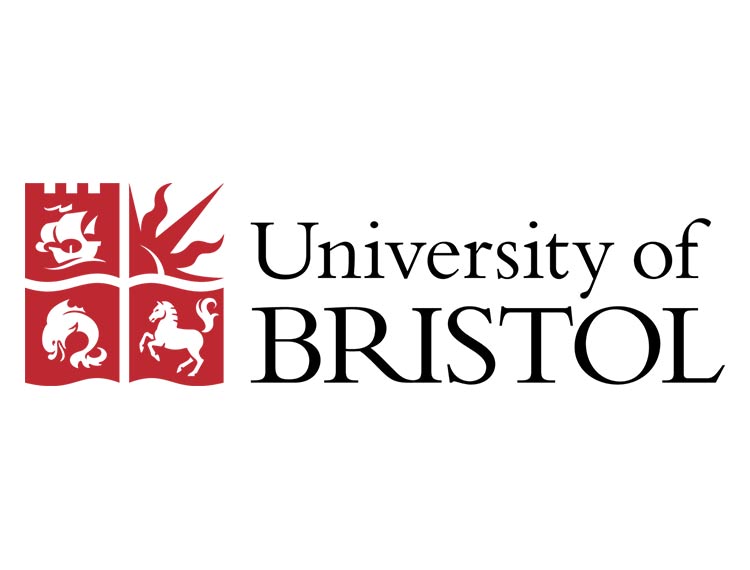University of Bristol professors join Academy of Medical Sciences Fellowship

They join 50 outstanding biomedical and health scientists selected for their exceptional contributions to the advancement of medical science.
Jane Blazeby FMedSci is Professor of Surgery at the University of Bristol and an Honorary Consultant Surgeon at University Hospitals Bristol NHS Foundation Trust. She studied Medicine at the University of Bristol and undertook higher surgical training in the South West of England. Jane has a long-standing interest in patient centred surgical care and standards of surgery. She has developed and validated an international portfolio of patient reported outcome measures which are widely used in clinical trials in surgical oncology. She collaborates with surgeons, methodologists, trialists and patient partners to design and deliver randomised controlled surgical trials and is working hard to establish evidence based surgical practice in the UK.
Prof. Blazeby said: “I am pleased to be elected to the Academy of Medical Sciences. Surgical research was once referred to as, ‘comic opera’, but now its becoming symphonic. Playing a symphony needs a whole orchestra and I am indebted to the whole team for their part in this achievement.”
Jonathan Sterne is Professor of Medical Statistics and Epidemiology at the University of Bristol, Director of the Health Data Research UK South West Better Care Partnership, and Deputy Director of the NIHR Bristol Biomedical Research Centre. His research uses cutting edge epidemiological and statistical methods to understand how to predict and treat disease. He led development of tools to assess the risk of bias in randomised trials and nonrandomised studies that are used by systematic review authors worldwide. Since 2005 he has led the ART Cohort Collaboration (ART-CC) of European and North American HIV cohort studies, which has made substantial contributions to understanding the prognosis and treatment of people living with HIV in the era of combination antiretroviral therapy.
Prof. Sterne said: “I’m delighted by this recognition of the importance of the research that I’ve achieved with colleagues in Bristol and around the world. My Fellowship also reflects the vital contributions of medical statistics and epidemiology to medical sciences, in an era when unprecedented availability of big data is opening up new possibilities for impactful research.”
Multiple new Fellows have been key providers of independent advice to the Government during the pandemic. Professor Jonathan Nguyen-Van-Tam FMedSci, the UK Government’s Deputy Chief Medical Officer, leads on health protection and has regularly presented at the 10 Downing Street COVID-19 press conferences. New Fellow Professor Yvonne Doyle FMedSci has led the COVID-19 response from Public Health England, where she is Medical Director and Director of Health Protection, at the same time as maintaining a significant media presence to ensure public understanding of the virus.
Professor Dame Anne Johnson PMedSci, President of the Academy of Medical Sciences, said: “I am truly delighted to welcome these 50 new Fellows to the Academy’s Fellowship, and I offer my congratulations to each of them on their exceptional contribution to biomedical and health science. The knowledge, skill and influence that each brings to the Fellowship is the Academy’s most powerful asset.
“The last year has clearly demonstrated the power and prowess of UK biomedical science, and I am proud of how many Fellows, new and old, have been at the forefront of the COVID-19 response in the UK and globally.
“Although it is hard to look beyond the pandemic right now, I want to stress how important it is that the Academy Fellowship represents the widest diversity of biomedical and health sciences. The greatest health advances rely on the findings of many types of research, and on multidisciplinary teams and cross-sector and global collaboration.
“I am pleased that the newest cohort of Fellows demonstrates this breadth of expertise, from microbiology to healthcare law and medical statistics. I also warmly welcome the three new Fellows bringing knowledge and insight from the industry sector; translational collaboration with industry is necessary for patients to reap the full benefits of UK research.”
Professor Philippa Saunders FRSE FMedSci, Registrar of the Academy of Medical Sciences, said: “The Academy’s mission of improving health via biomedical research relies upon the brightest minds coming together from across a wide range of backgrounds. We strive for a more diverse and equal Fellowship, and the new Fellows of 2021 include the highest proportion of experts from minority ethnic backgrounds ever elected to the Academy, at 14%, up from 12% last year. Regional representation within the Fellowship continues toimprove, with new Fellows being elected from 11 different regions of the UK, including Northern Ireland for the first time. A third of the new Fellows are women.
“The Academy sees increasing diversity in those we work with as a priority for this year, and we expect it to be a central component of our upcoming 10-year strategy.
“The pandemic has highlighted the global nature of health and the immense power that the scientific community can have when it works together. I am delighted to welcomethe 50 new Fellows and look forward to working with them through the Academy.”
The new Fellows will be formally admitted to the Academy on 1 July 2021.











Responses